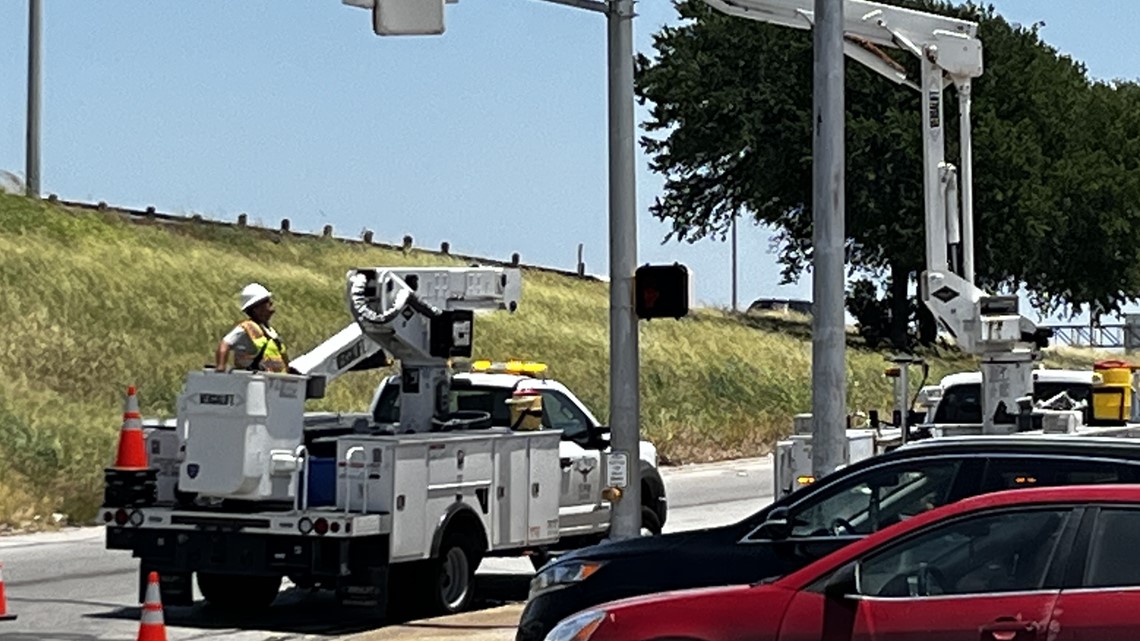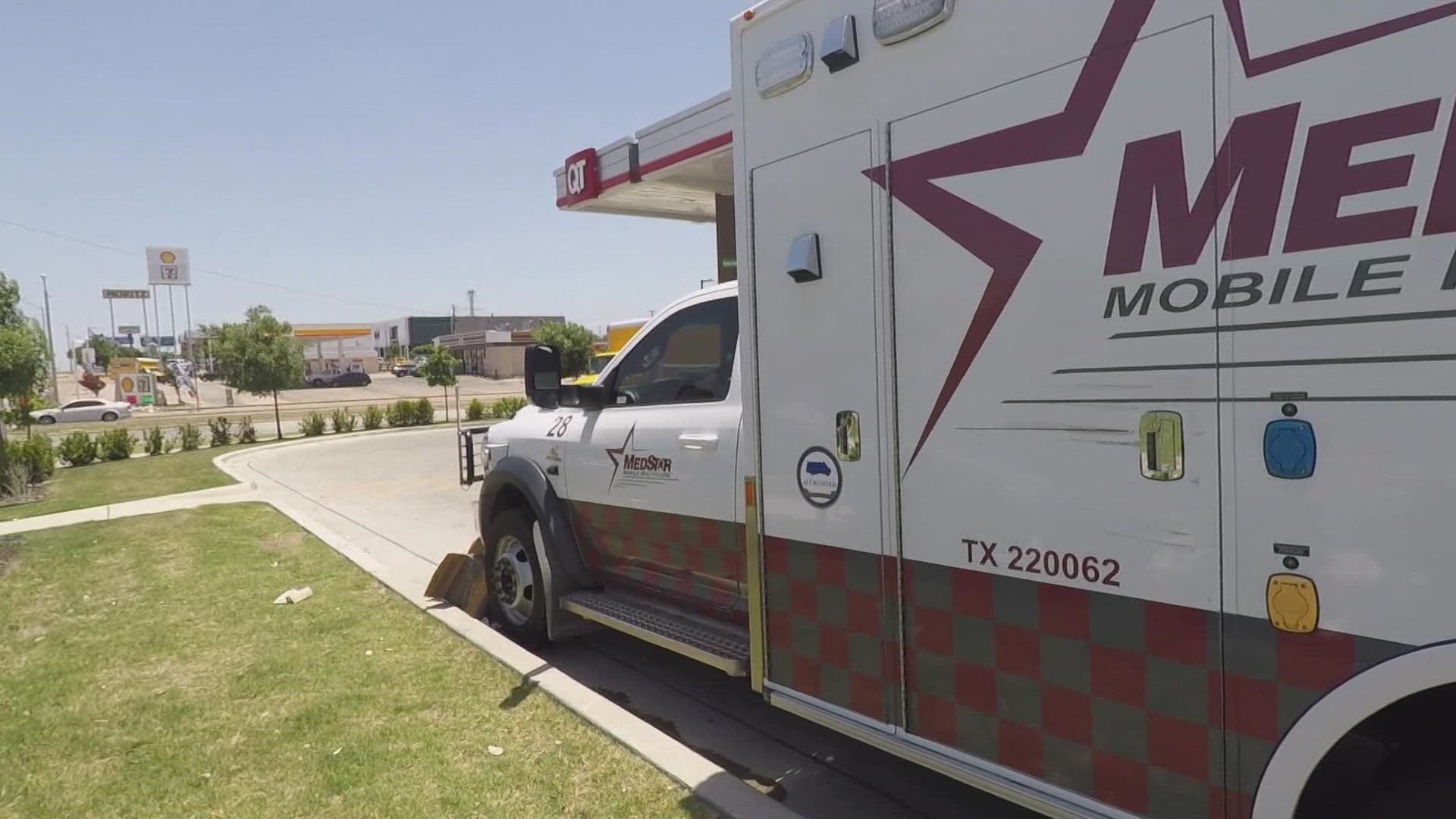FORT WORTH, Texas — As the temperatures heat up across Texas, so does the demand for power and people looking for ways to keep cool. MedStar's heat-related emergency runs are through the roof, officials say.
Matt Zavadsky serves as the spokesperson for MedStar and keeps track of the numbers. He recently compared emergency heat runs to last year's calls.
"Probably again, because of the early high temperatures and more people being out and about," said Zavadsky, of the rising heat-related calls.
MedStar crews can respond quickly thanks to their ongoing standby practices. Ambulance drivers stay parked in areas with high call volumes. In some cases when an ambulance crew is dispatched and leaves a staging location, another crew awaiting calls will take the same spot knowing they too may be needed at any time.
"Right now, we're at the QuikTrip at Las Vegas and 30," Zavadsky said. "We know that there's going to be a call here sometime in the next hour."
People, like power crews who work outside, are at higher risk of the hotter temperatures. MedStar urges work crews, and people in general, to take precautions.


"There are 16 bottles of water in this ambulance for every crew that's going to be in the truck for 12 hours," said Zavadsky, on the preparations paramedics and EMTs take while awaiting calls in the heat.
According to Medstar, the most common symptom of heat exhaustion, which is the first phase of a heat-related illness, is profuse sweating, muscle cramps, and some nausea with potentially vomiting.
"Someone that has those symptoms, it is time to get out of the heat, move into a cooler environment and start drinking water like crazy right now," said Zavadsky.
The City of Fort Worth has not announced any locations identified as cooling stations. For people without access to air conditioning, city leaders urge them to get out of the heat and take advantage of cool places, like community centers and libraries. There's one at 3628 Bernie Anderson Avenue, which is open to the public until 8 p.m.
The same demand to keep cool is impacting the power grids across Texas.
Doug Lewin is a power use and energy expert. He's also the president of Stoic Energy Consulting. Lewin has even evaluated how his own family uses energy at home.
"We don't want to spend most of our money on utility costs either." Lewin said. "We're only in June."
Lewin warns, brace yourself, as hot temperatures challenge the power grid, especially since it has gotten hotter sooner in the Lone Star State. Lewin believes in conservation, still, he wants Texas to help more homeowners conserve by making their houses and residents more energy efficient.
Other states have had success in doing so, but Texas's population is growing -- resulting in more energy and usage.
"Texas is one of them of course, spends about $50 million a year on energy efficiency programs. But per capita, that's about a third what even Arkansas, Oklahoma spent on their energy efficiency program," said Lewin.
Lewin also expressed concerns about the future for Texans demanding electricity as technology advances. More electric items at home will increase the demand.
"And this is going to become even bigger with electric vehicles as you think of all of them, what about 125,000 electric vehicles? We're only a few years away, probably to where we're a million, certainly half a million within a couple of years. Maybe as many as a million," Lewin said. "We live in an age now where so many devices are connected, right? They're connected to Wi-Fi. Everything from... if you bought a dishwasher, a washing machine in the last couple of years, it's connected. A lot of people have smart thermostats that are up over a million. There's basically everything can be connected, either already is connected or can be connected very cheaply. We should be using advances in A.I. and artificial intelligence and machines learning to move devices and appliances in homes up and down."
Lewin's concerns are timely, especially after what happened on the weekend of June 10 across Texas. Sunday, ERCOT saw its highest demand ever on the Texas girds. Fortunately, there was enough supply to meet the record demand.

